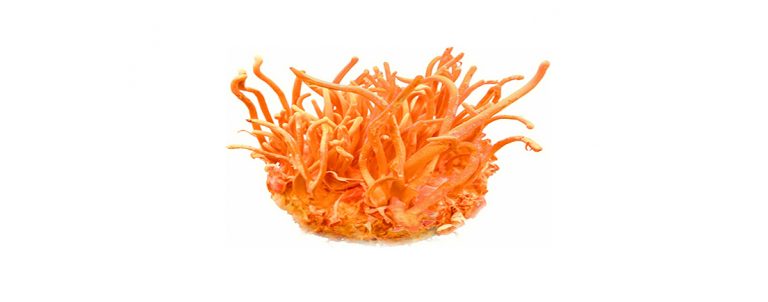Cordyceps, or Chinese gooseberry, is a mushroom belonging to the group of adaptogenes, or herbs that help our organism adapt to living in difficult environments. Cordyceps has been used as an adaptogen for centuries by Tibetan shepherds in the land of natural habitat, who have been watching this way of supporting physical fitness by watching their patients, diligently searching and passionately chewing on tasty mushrooms. It’s a permanent element of traditional Chinese medicine, and this mushroom also arouses interest in modern Western medicine, mainly due to its antidiabetic and anticancer properties.

Sports support specialists became interested in cordyceps in 1988, after the Seoul Olympics, with the arena witnessing the largest ever doping incident. There were rumours circulating that the Asian athletes reportedly benefited from their successful "magic mushroom" support. In the 1990s, at least two review papers appeared, discussing the unpublished research of Chinese scientists, demonstrating the extremely spectacular positive impact the drake has on the development of the sporty form. Some of these experiments have been subjected to later verification in well-controlled scientific studies, while the research has been widely discussed. Cordyceps mainly supports the development of strength and endurance.
Because well-controlled experiments, aimed at confirming the positive effect of cordyceps on the development of endurance, have so far been predominantly carried out on animals, Hirsch's team of American researchers has recently decided to verify these reports in a study involving athlete training. Below is what you the American scientists were able to find out…
The study was conducted to determine the effect of cordyceps-containing fungus on exercise performance improvement in high intensity workouts, as a result of weekly and 3-week supplementation. In this randomized, double-blind, placebo-controlled study, 28 young volunteers (average age - 23 yo) participated in this randomized, double-blind, placebo-controlled study. Maximum oxygen consumption (VO2max), exhaustion time (TTE), and ventilation threshold (VT) were measured here in the maximum exercise test on a bicycle cyclometer.
The subjects either consumed 4 g of cordyceps mushrooms daily (MR group) or maltodextrin as placebo (PL group) within 1 week of supplementation. Ten volunteers supplemented the cordyceps diet for another 2 weeks. Stress tests have been separated from 48-hour training sessions and repeated at the end of supplementation.
One week of supplementation did not result in statistically significant improvement in exercise parameters. However, after 3 weeks VO2max was significantly improved in the MR group (+4.8 ml x kg-1-min-1) but not in the PL group (+0.9 ml x kg-1-min-1). From this data we can conclude that in the cordyceps group, compared to placebo, there was more than 5-fold improvement in exercise capacity. On the other hand, the 95% confidence interval showed a significant improvement in TTE at 1 (+28.1 s) and 3 weeks of supplementation (+69.8 s) in the MR group but not in the PL group, with an additional improvement in VO2max (+4.8 ml x kg -1- Min-1) and VT (+0.7 l-min-1) after 3 weeks of supplementation.
Ultimately, the authors conclude that although immediate administration of cordyceps may improve tolerance to high intensity exercise, greater benefits will be achieved through long-term and consistent supplementation (Hirsch, 2016).






